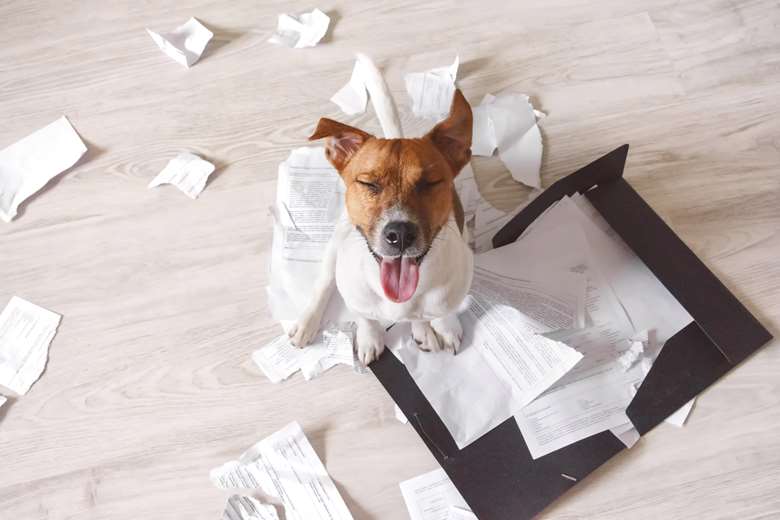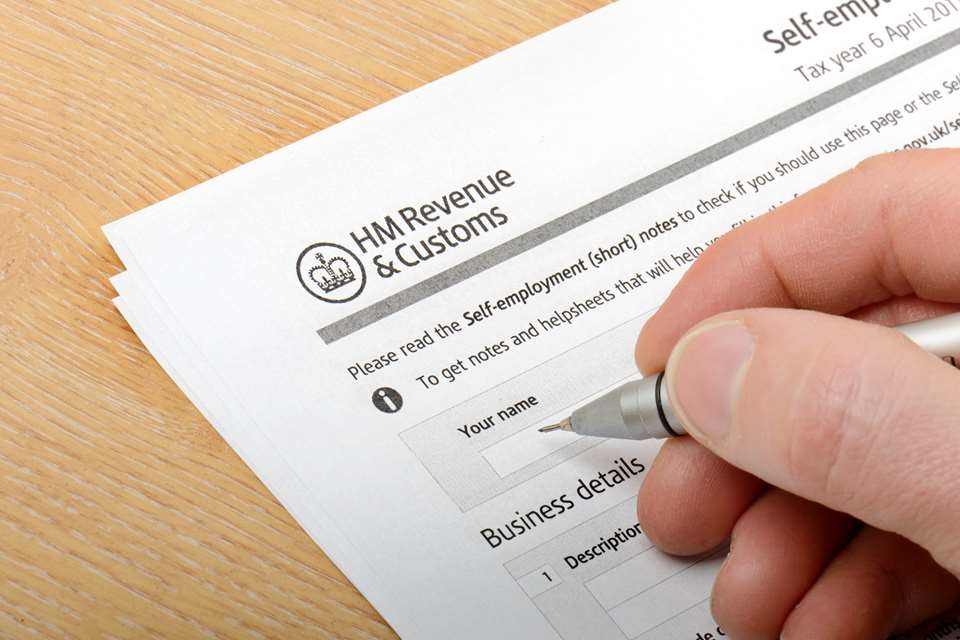The Singing Accountant™: HMRC accepts ‘hungry hounds homework’ excuses
Louise Herrington, classically trained opera singer and professionally qualified accountant
Tuesday, April 2, 2024
Sponsored content: The Singing Accountant™ brings some much-needed April Fools levity to the topic of self-assessment tax returns – and explains why your 'my dog ate my homework' excuse won't fly with HMRC

As April dawns and another tax year slides into view, Louise Herrington (The Singing Accountant™) suggests that there may be a significant breakthrough on the horizon for performers who fall behind on their self-assessment returns. Speaking with her tongue firmly in her cheek, Louise went on to suggest that, given the relentless speculation about a General Election, the time may finally have come for the Tax Office to accept alien abductions and power cuts as perfectly feasible excuses for filing for paperwork late. However, on closer examination, Herrington confessed to attempting to bring some much-needed levity to the perennial problem of fiscal filing. Believe it or not, us accountants are not all the same – some of us have a sense of humour, although we hide this if possible, and some of us (well, perhaps just me) are former performers. So the opportunity to make light of tax returns every now and then too much to resist.
In all seriousness, I have had many variations on dogs eating homework as excuses for filing late and I’m afraid that – April Fool or not – HMRC are not going to accept them. As I submitted my last column for this respected publication back in January, with only one week to go until the self-assessment deadline, 3.8 million people had yet to file their tax return.
Indeed, at the time HMRC said they were expecting more than 12.1 million tax returns to be filed that week for the 2022 to 2023 tax year along with any payment that is owed. It is quite frightening. An estimated well over 1 million people missed the deadline – an increase of around 100,000 compared with last year. Part of this comes down to ‘fiscal drag’ which is about as depressing as it sounds and effectively meant that more people needed to file self-assessment forms for the first time because of the Treasury’s decision to freeze income tax bands.
"I have had many variations on dogs eating homework as excuses for filing late and I’m afraid that – April Fool or not – HMRC are not going to accept them"
Louise Herrington, classically trained opera singer and professionally qualified accountantThat explains the first-timers but what about the folk who seem to find themselves stuck in this same trap every year? Sometimes, there is genuine confusion, especially in the industry we work in where business and pleasure often cross between blurred lines. ‘It’s not like this on Suits, that’s for sure!’ My client cries, as we go through his expenses. Having not seen Suits since 2019 I was at a loss. However, casting my mind back, there are indeed endless coffees, pastries and treats being snaffled and seemingly bunged on expenses. It was the same with LA Law, if you can recall that show from the dim and distant past?
Well, no, isn’t like Suits because I think it’s fair to say that filming a red-hot filing scene and then a nail-biting expense form submission isn’t quite the thrilling content that will give the award-winning series another run.
Also, we are in the UK and here, as a Limited company, when you buy food and stuff for people on your team who are not employees you can indeed put them through the accounts as ‘entertaining’ but (spoiler alert) they are not going to be allowable on the Corporation Tax return. In fact, it doesn’t matter what your company structure is, if someone is not on your payroll, you cannot claim. If they are, you can claim but it is a limited amount (oh the irony) and there are rules and procedures to follow. Hence those scenes rarely make the cut in Suits.
The principal is the same if you are not Limited; if you buy food for all the members of your string quartet for instance, it is classed as ‘Entertaining’ and therefore disallowed – even your sarnie – as there is a thing HMRC brings in here called ‘dual benefit’ as you had company whilst eating.
I know, it seems ridiculous, but these are the rules. In an ideal world, you should pay separately on an individual bill or if you go out together just pay your share but do prepare to be questioned should you ever be investigated – unlikely as that may feel. Also, when it comes to ‘subsisting’ vs ‘entertaining’ i.e. you are buying this for yourself (because you need to eat, not entertain) be mindful of the cost – do you really spend £20 on food when at home? I know certain cities and outlets cost more but be mindful of raising too many eyebrows.
 Louise Herrington, the Singing Accountant™
Louise Herrington, the Singing Accountant™
So, April Fool’s and fiscal faffing aside, how do we avoid all this hassle? Well, last time I set out some New Year Resolutions for January but why not use the exciting and shiny new tax year to make them again (if you’ve ‘forgotten’ them):
- Do your bookkeeping each week. Just 20-30 minutes will save you so much time in the long run.
- Consider investing in an accounting app like Xero or 1Tap
- Always keep your receipts. If you use an online app like 1tap or Dext solo, providing the photo of the receipt is in focus, it will extract the relevant information to your bookkeeping and if you lose the receipt, the app has a copy.
- Track your mileage if you use a car, motorbike or bike for self-employment.
- Put aside at least 29% of your income as soon as it comes in as a ‘Tax Pot’.
- Have a separate bank account for your self-employment income and expenses. Any PAYE income goes into a separate ‘life’ account.
- If you buy instruments or big items, keep the receipt very, very safe and track how you deal with it in your tax and accounts, as you MAY be able to claim capital allowances. (NB: you may have to pay some back if you sell the item for a profit.)
So there’s 7 but how about a bonus, Louise? An encore if you will?!
OK – why not aim to do your tax return in May or June? You may be able to get a reduction on your payment on account if you have to make one because if your profit is lower, you may be able to reduce the amount in July, and even get something back from January. Clever, eh?
My book, The Singing Accountant's Guide to Tax and Accounts contains everything a performer would want to know about setting up as self-employed, from registering with HMRC to starting to complete your self-assessment tax return and what can happen if things go wrong.





